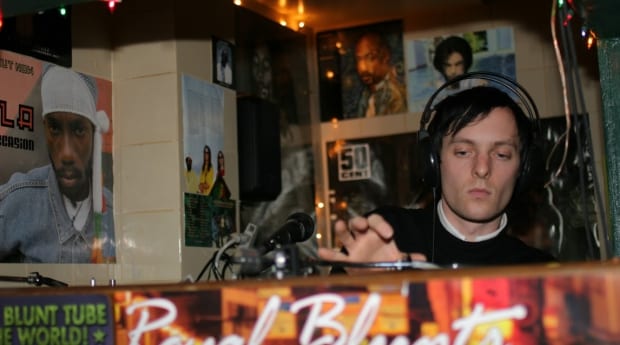The day Will Munro died from brain cancer in 2010, Dave Munro went back to his brother’s apartment and turned on the news to try to numb his brain.
“And it went across the bottom of the teletype that he had died,” recalls Dave. “I was floored that it was on TV.”
That night, Toronto mourned. Art galleries, movie theatres and nightclubs shut down to honour the 35-year old artist, restaurateur, DJ, youth counsellor, party promoter and overall pillar of the city’s queer community.
Since then, Will’s legacy has been celebrated in many ways; through retrospective art shows, and books, and parties and the Beaver.
“People are very adamant about keeping his name very much alive, which is unbelievably wonderful,” Dave says.
And after five years of work, Will’s family and friends are launching a new initiative that they hope will also be part of that legacy.
The Will Munro Fund for Queer and Trans People Living with Cancer will provide short-term emergency relief for LGBT people in Ontario with cancer.
“Will had such an outpouring of support from all of his friends and the community and not everybody has that,” says Margaret Munro, Will’s mother. “So many people have to go through something this traumatic without support.”
The fund, which is being trusteed by The 519, Toronto’s LGBT community centre, will give out $5,000 a year, with up to $800 every two months going to a person in need of assistance.
John Farrell, director of development at The 519, says that the fund is large enough to distribute money for five years, but he’s hoping more donations will come in to extend that time.
“What was wonderful for us is that we received probably a half-dozen to a dozen donations directly to the Will Munro Fund, after the fund was launched last month,” Farrell says.
Dave says that the fund is intended to go to people who are disenfranchised and don’t necessarily have the support system that Will had.
“We were basing a lot of what we wanted to do based off of Will’s experience in the system,” Dave says.
Margaret recalls a time when Will was going to radiation, and there was an older woman who came by bus for her therapy. The experience affected Will greatly and he hoped that there could be something to help people in that situation.
Even though Will had many dedicated people around him to help him through his cancer (“You watched this little action unit fall into place, with regular meetings with attendance and minutes,” Dave recalls), there were still difficulties.
“He wasn’t making his meals a lot of the time, people were dropping food off to him, someone was always with him. People had arranged housing when that became complicated. It was incredible.”
While The 519 has been reaching out to various social service agencies and health care providers, so far no one has applied for the first round of funds.
But Dave hopes that greater publicity will get the money to people who are in need.
A website that would bring together resources for LGBT people with cancer is also in the works.
When Dave looks back at his brother’s life, he’s still astounded by how many people Will touched.
“Each one of these people have a special version of Will,” he says. “And I think with the fund, what this allows is new people to still have a special version. It’s going to be unique for each person and I think that in itself speak to what he was able to generate.”
But for Dave, Will will always be his little brother.
“It’s still strange. I still expect to hear his phone call at some point and time, because he was awful at doing that.”
For more information on the Will Munro Fund for Queer and Trans People Living with Cancer, check The 519’s page for it here.

 Why you can trust Xtra
Why you can trust Xtra


